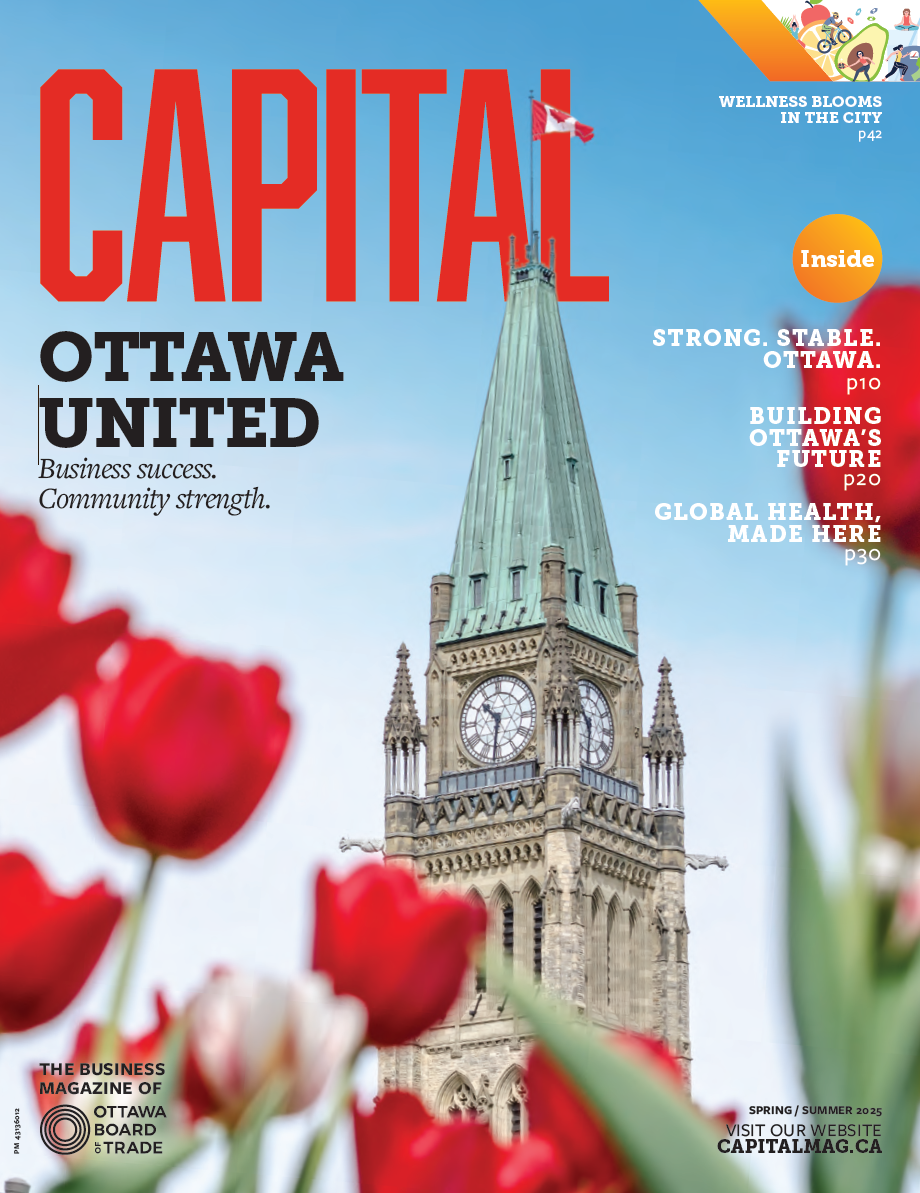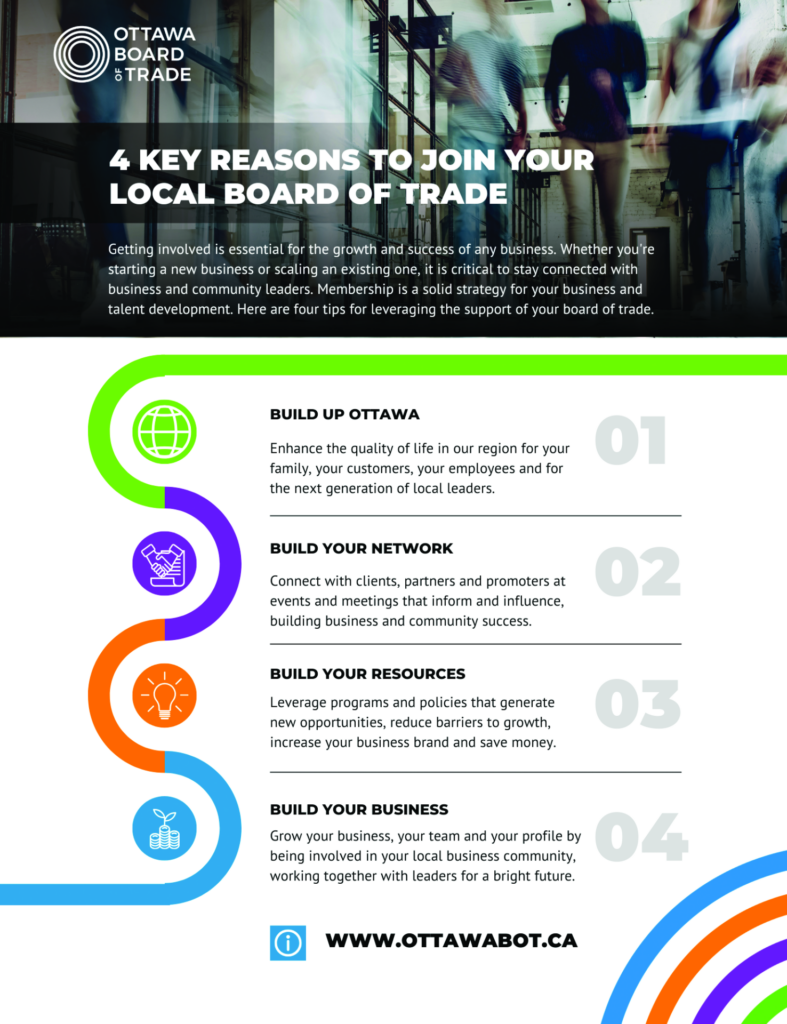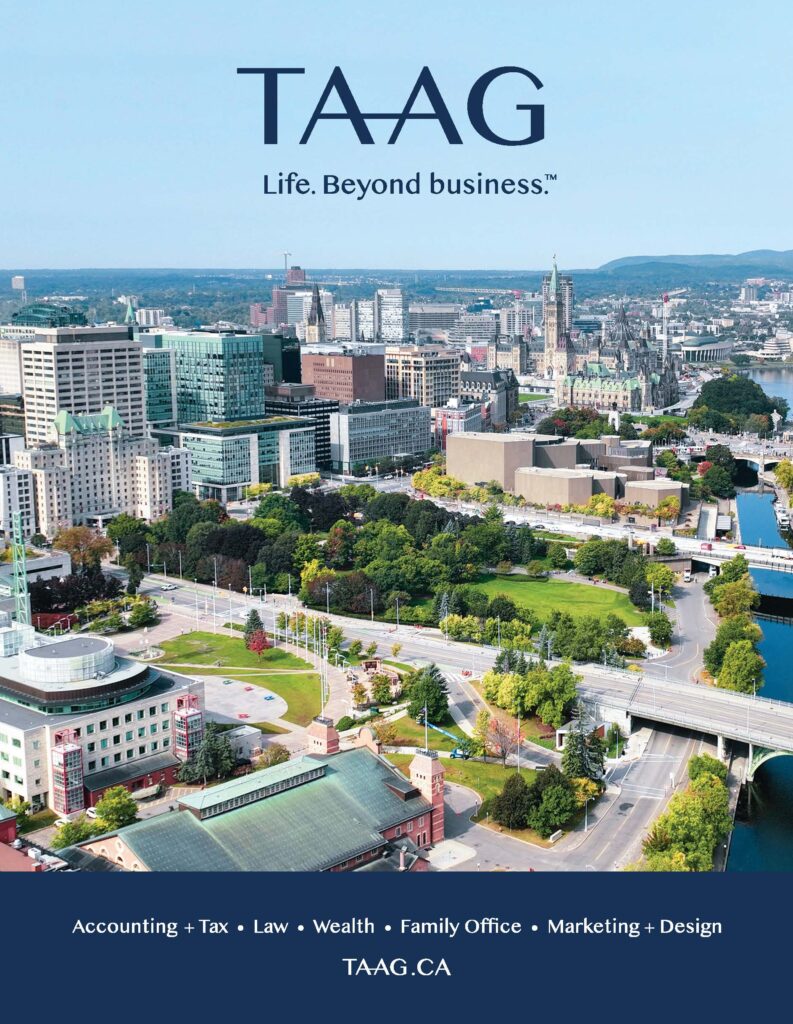C-Suite View: The Future of Ottawa: Young leaders optimistic for diversity, entrepreneurship and innovation

By Jennifer Campbell
Ask a group of young, ambitious and accomplished technology leaders — all recently named Forty under 40 recipients by the Ottawa Board of Trade and the Ottawa Business Journal — what they see coming for the city over the next 25 years and you’ll hear diverse answers. But as the pandemic seemed to be slowly waning there was one common theme in all the answers: Optimism. These leaders are bullish on Ottawa.
Kurtis Funai, chief technology officer at Fullscript, sees Ottawa churning out more technology startups like his own. Fullscript is a wellness platform that focuses on supplement prescribing and e-prescribing as well as diet and exercise. Patients log into the platform, access the information they need, purchase products and have them delivered to their door.
“We do all of the inventory management as well as fulfillment,” Funai said.
And they do it well. Launched in 2012 in Ottawa, Fullscript merged six years later with a U.S. company called Natural Partners. The company, still largely based in Ottawa, now has hundreds of millions in revenue and 500 employees.
Funai says Fullscript’s success is indicative of the kinds of technology success stories Ottawa is capable of replicating.
“Ottawa was historically recognized as a strong technical city and I think it’s well positioned to keep pushing forward that sector,” Funai said. “I predict a continuing trend of [technology] startups, especially as members of well-established companies like Shopify [move on.] I’m hopeful we’ll continue to attract strong [technology] talent to the city. Programs like the [federal government’s] Global Talent Stream have been helpful to us in bringing in global talent.”
Funai said the pandemic has increased the appetite for working from home for some, which may decrease the density in the city’s urban core with people opting to buy homes in rural areas.
“I think, depending on the trends in distributed workforces, that will dramatically impact how this city evolves,” he said. “I’ve also seen a pretty significant migration of young people from Ottawa in search of affordable housing. I think this trend will continue. You’ll start seeing people migrating to smaller surrounding areas like Carleton Place and Manotick.”
Solmaz Shahalizadeh Kalkhoran, vice-president of data science and engineering and head of commerce intelligence at Shopify, said she sees Ottawa “moving towards becoming a cornerstone of innovation and entrepreneurship in Canada.”
She expects to see Ottawa transform into an “epicentre of vibrant and diverse companies and communities” with the right investment.
“In order to make this a reality, we need to continue to invest in and support our local entrepreneurs,” she said. “Only then will we be able to produce healthy competition that will fuel our city and spur us into a global centre.”
She said this vision is why she’s passionate about the work she’s doing with Backbone Angels to fund the next generation of diverse founders in Canada.
Elnaz Kanani K., senior manager of data and artificial intelligence at Deloitte, said she is certain of one thing — that Ottawa will be a “multidimensional” city that is home to many different businesses.
“I say that the schools we have here are offering [learning in] lots of different and diverse fields,” she said.
She doesn’t see Ottawa solely being a tech hub, or a policy hub.
Having the federal government here will help to keep the economy broad and diverse, she said.
She does see the industry presence in Ottawa growing. “We have a good platform that can be home to many different fields.”
The challenges
Ottawa’s next 25 years will inevitably see some challenges, but hopefully none of the proportion of COVID-19 lockdowns. “The pandemic brought this forced adoption of remote working to many businesses and while there are certainly some benefits to that, there are also significant challenges,” Funai said. “Employees are gaining more time back in their calendars, avoiding commutes; they have generally more flexible working schedules, but the downsides are significant when businesses are not well equipped or thinking strategically about how to create an engaging remote work experience.”
Funai said companies are also becoming more and more competitive on recruitment and Ottawa is seeing increased pressure from the U.S.
“The U.S. has recognized that there are highly skilled people in Canada,” he said, because new recruits can continue working from Ottawa. “You can enjoy Ottawa and earn from a U.S. organization that’s using their buying power here and providing highly engaging work experiences.”
High housing prices also pose a significant risk for brain drain, Funai said, and added that the other big challenge to be faced in the next 25 years is climate change.
“There’s an opportunity for investments and growth in the green energy space and hopefully Canada can be an innovator there, but I think it’s on businesses and government to really lead the charge,” he said and added that FullScript is certified carbon neutral. “People can do their part, but we need regulation, policy and businesses to step up.”
Kanani K., who teaches at the Telfer School of Management, says the biggest challenge is the limited attention spans of younger people “because of all these distractions we have — and I think that will expand even more.”
She said a lack of focus kills the desire to get things done. “I don’t see the patience of ‘let’s focus on something, let’s fail, let’s learn, let’s get up, let’s try again.’ It’s very tough to keep the new generation focused on something. If they put their mind to it, there is no limitation. They will definitely go beyond everything if they want to do it, but that’s a big if.”
Shahalizadeh Kalkhoran says for Ottawa to become a truly global city, it will take vision.
“One of the ways Shopify was able to do this was by identifying opportunities to use artificial intelligence (AI) to change the commerce industry, enabling us to empower entrepreneurs around the world,” she said. “The future generation of leaders needs to tap into the power of game-changing technologies to challenge and advance other traditional industries.”

























